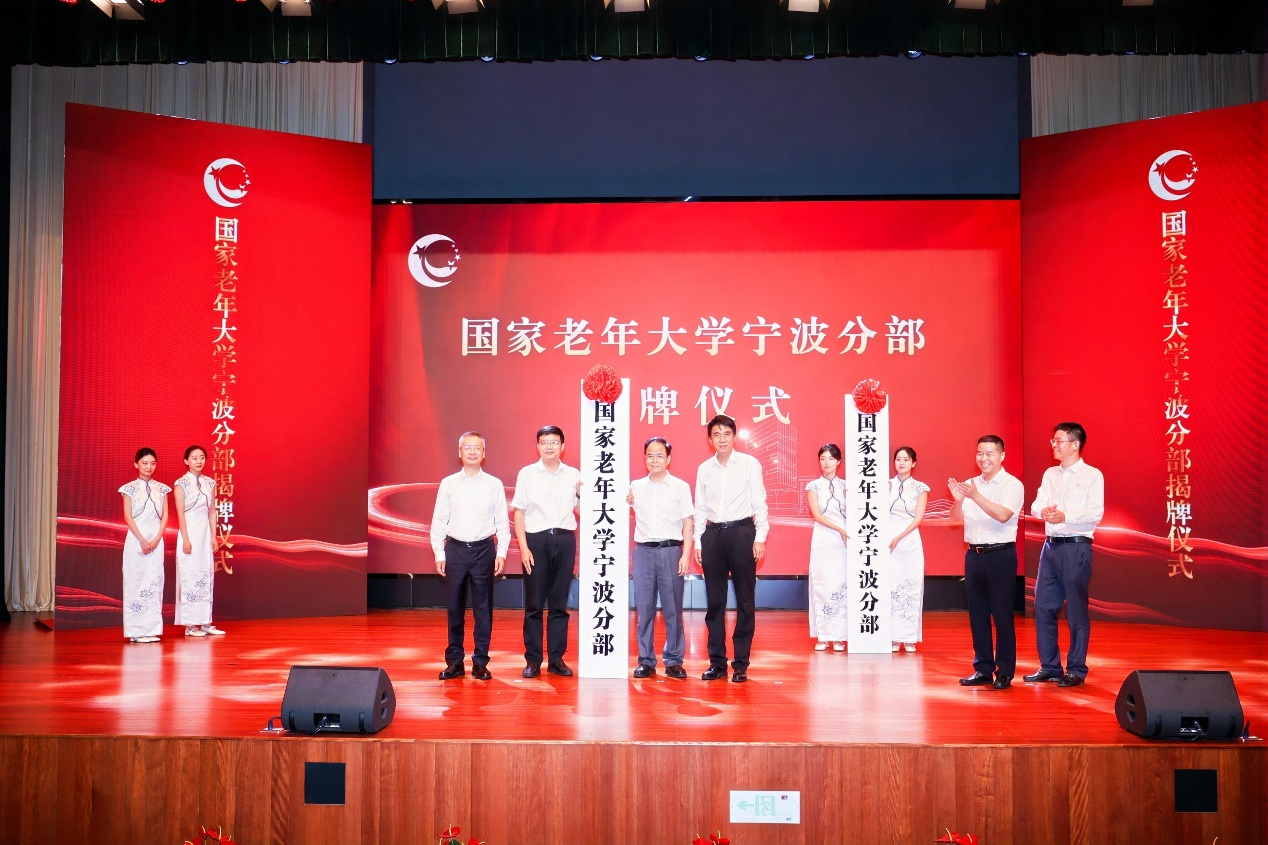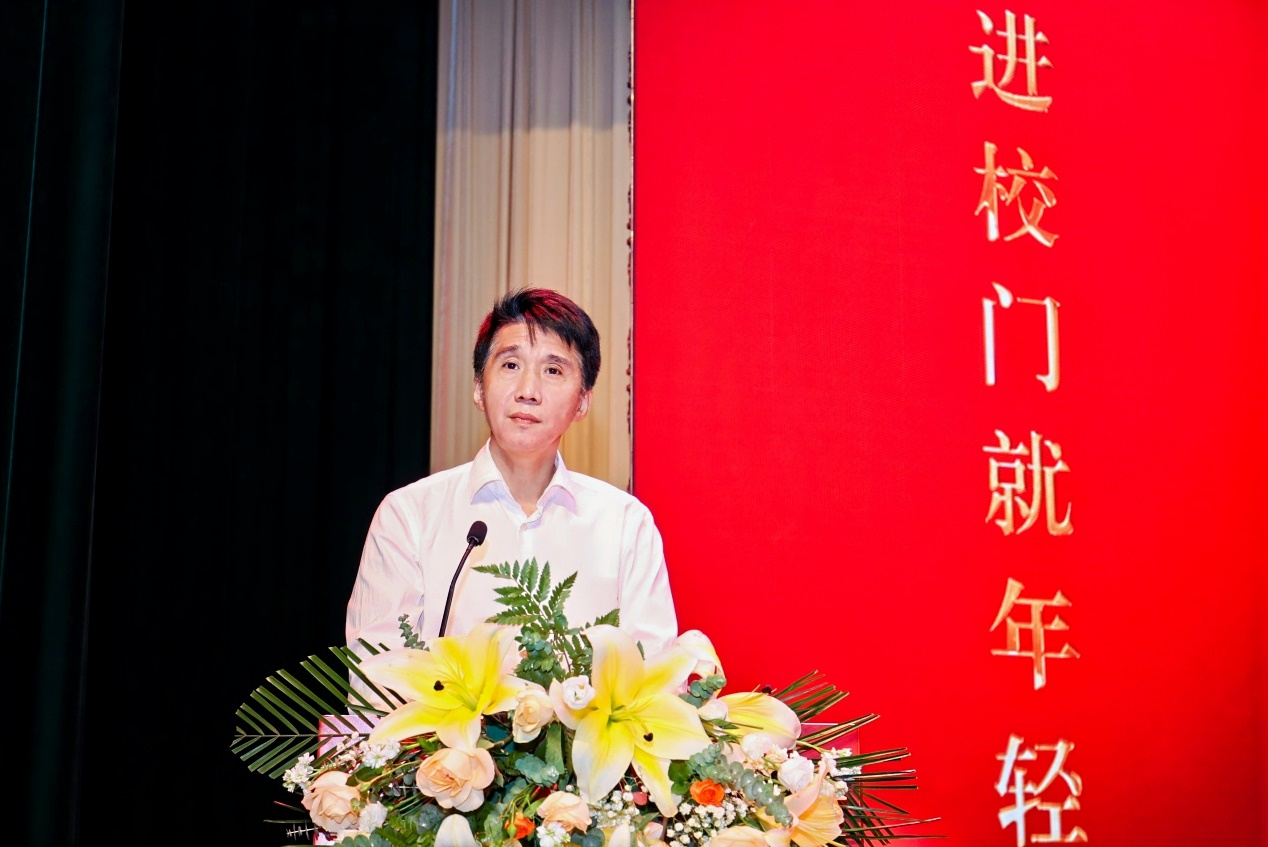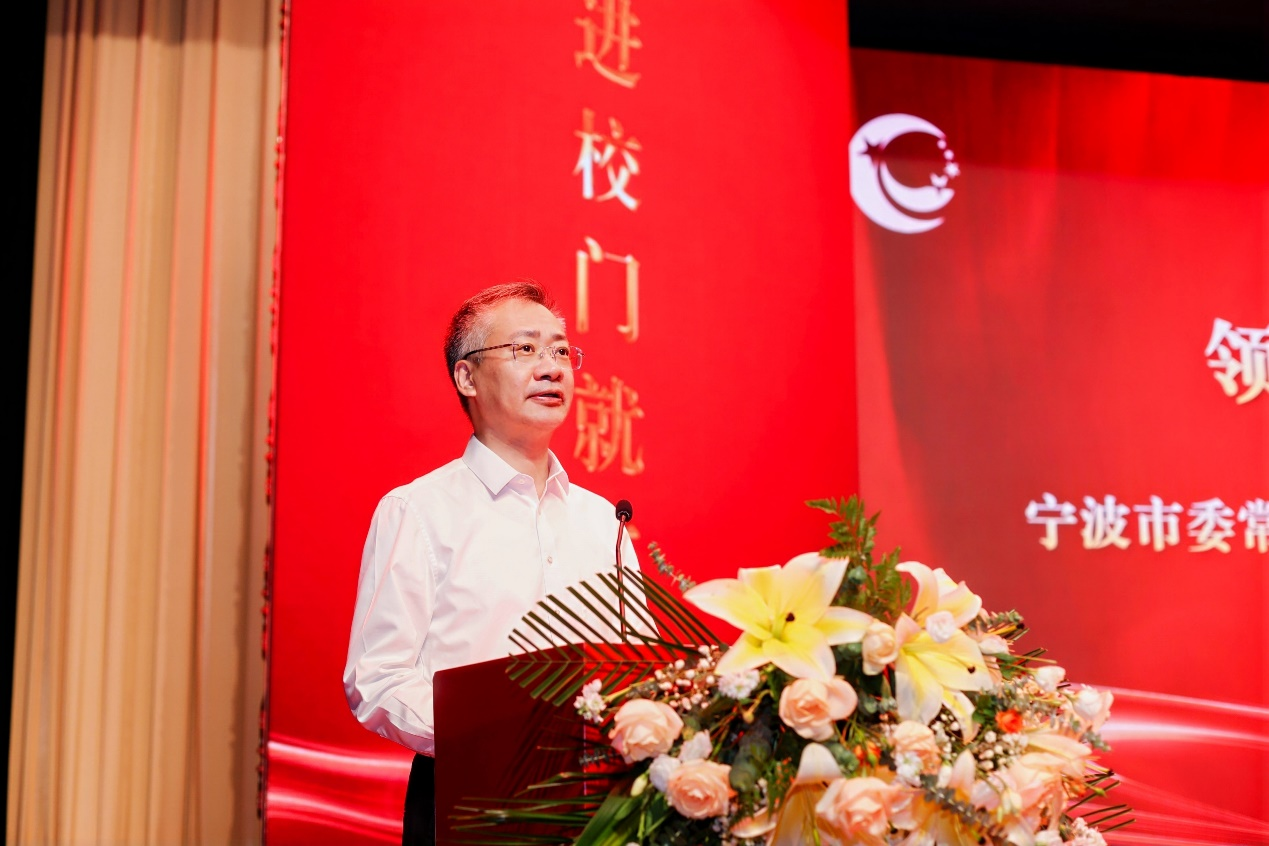 On 3 July 2024, Wang Qiming, secretary of the Party Committee and president, along with Fan Xianrui, a member of the Party Committee and vice president of the Open University of China (OUC, also known as Seniors University of China, SUC), led a delegation to Ningbo Open University and Seniors University of Ningbo to conduct a research visit.
On 3 July 2024, Wang Qiming, secretary of the Party Committee and president, along with Fan Xianrui, a member of the Party Committee and vice president of the Open University of China (OUC, also known as Seniors University of China, SUC), led a delegation to Ningbo Open University and Seniors University of Ningbo to conduct a research visit.
They also attended the unveiling ceremony of the Ningbo Branch of the SUC.

Wang Qiming attended the unveiling ceremony of the SUC Ningbo Branch.
Attending the ceremony were Zheng Minqiang, a member of the Ningbo Municipal Party Committee and head of the Organisation Department; Zhou Yuan’er, deputy secretary-general of the Ningbo Municipal Government; Yan Shi’en, deputy head of the Organisation Department and director of the Bureau of Veteran Cadres; Mao Caisheng, secretary of the Party Committee and director of the Ningbo Municipal Education Bureau; Jiang Shiyong, secretary of the Party Committee of Ningbo Open University; and Weng Xuelian, president of Ningbo Open University attended the unveiling ceremony. Over 400 participants, including leaders from Ningbo's education system and the Bureau of Veteran Cadres, education leaders from various counties and districts in Ningbo, heads of elderly education institutions, representatives of elderly students, and teachers from Ningbo Open University, attended the event.

Wang Qiming delivered a speech.
Representing the OUC (SUC), Wang Qiming extended his congratulations on the establishment of the Ningbo Branch of the SUC. He reviewed the innovative development journey of the SUC over the past year and fully affirmed the achievements of Ningbo Open University and Seniors University of Ningbo in elderly education. He pointed out that the strong collaboration between the two universities to establish the Ningbo Branch is a significant step in the reform and development of elderly education in Ningbo, opening a new chapter of high-quality development. The SUC headquarters will provide robust support to the Ningbo Branch, fostering a new paradigm for the co-development of courses and majors, joint faculty training, shared research, co-hosted exhibitions, interconnected services, and collaborative promotion of distinctive initiatives. This will contribute to the construction of a learning society and country where lifelong learning is pursued by all.

Zheng Minqiang delivered a speech.
On behalf of the Ningbo Municipal Party Committee and Government, Zheng Minqiang expressed gratitude to the SUC for its concern and support for the development of elderly education in Ningbo. He noted that the unveiling of the SUC Ningbo Branch marks a significant milestone in the development of elderly education in Ningbo and represents a historic leap in the deep collaboration between Seniors University of Ningbo and Ningbo Open University. He stated that Ningbo's elderly education is currently at a critical juncture, transitioning from quantitative to qualitative change and from steady progress to new advancements. He expressed hope that both universities will remain focused on their goal of integrated development, work together to create a top-tier university for the elderly, and continue to lead the way in elderly education, staying at the vanguard of the times.
At the unveiling ceremony, Fan Xianrui read the official letter regarding the establishment of the SUC Ningbo Branch. The Ningbo Branch introduced six major initiatives for elderly education, including ideological, political and cultural guidance, faculty training, collaborative course development, informatisation enhancement, formation of a teaching and research community, and the cultivation of senior talented people. In the future, the Ningbo Branch of the SUC will focus on leveraging the synergistic advantages of the collaboration between the two universities, aiming to create a high ground for elderly education, highlighting its role as a leading municipal model, and strengthening the elderly education service system throughout Ningbo. Together, they will strive to create an inclusive, high-quality, and nurturing elderly education environment in Ningbo.
Relevant personnel from the General Office of Party and Administration of the OUC (SUC), Comprehensive Management Centre and Resource Platform Centre of the SUC participated in the research visit.
By SUC